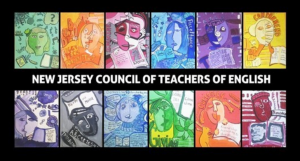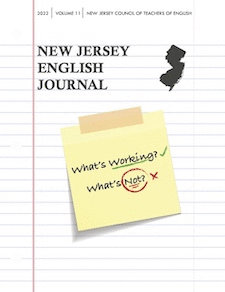Co-editors Lauren Zucker, Katie Whitley, and Susan Chenelle are pleased to announce the publication of the 2022 issue of New Jersey English Journal, “What’s Working? What’s Not?” The issue features articles on timely ELA topics such as climate change, goal-setting, and culturally responsive texts. Thanks to writers and reviewers for their hard work on this issue.
We also invite ELA teachers, preservice teachers, teacher educators, and researchers to write for our 2023 issue, “Reviving Engagement in ELA.”
This year, we ask writers to consider ways to revive both student and teacher engagement in English Language Arts. For students, what strategies and content can promote their love of learning and literacy? For teachers, what practices can schools adopt or abandon to reduce burnout, reignite passion, and attract and retain new educators?
Click here for the full call for submissions. Due date is Wednesday, December 28, 2022.
Our journal welcomes submissions from new and experienced teachers, including pre-service, in-service, undergraduate, and graduate students. We seek research and practitioner-oriented pieces (1000-2000 words), as well as personal essays (700-1000 words) and other creative responses related to the theme and geared towards an audience of P–12 and postsecondary English Language Arts educators.
Some of our student writers have adapted ideas from university coursework for publication, and/or co-authored pieces with their professors. Previous writers have also successfully adapted content from conference presentations for submission.
Writers do not have to live or work in New Jersey to submit to the journal. We are also seeking reviewers, which can be a great way for new writers to familiarize themselves with our publication.



 We are thrilled to announce the publication of the
We are thrilled to announce the publication of the